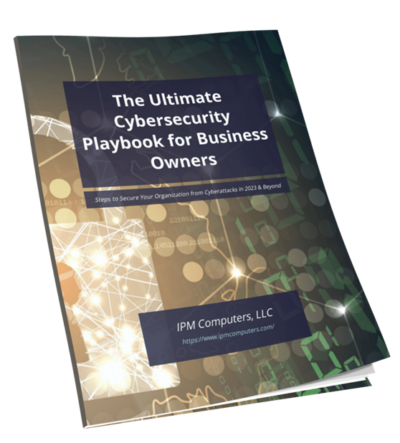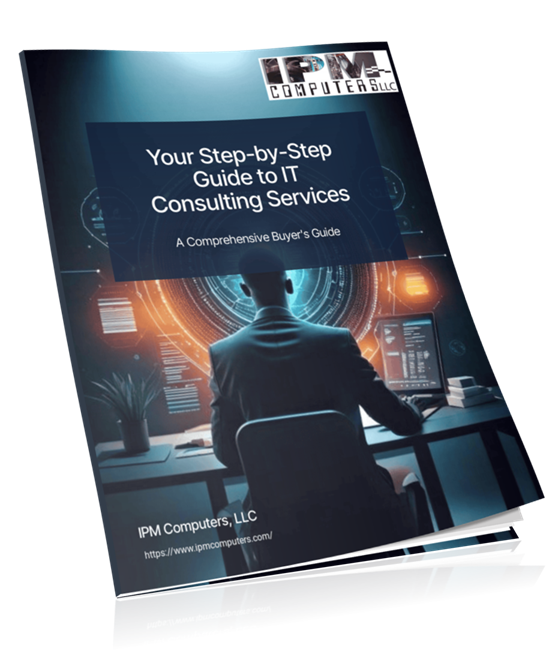In the manufacturing world, Information Technology (IT) is essential. IT systems are crucial for managing and improving complex manufacturing processes. With technology, manufacturers can automate tasks, make decisions based on data, and connect different operations seamlessly.
Wilmington managed IT services can play an important role in this change to help with improving efficiency and minimizing downtime. These services go beyond just keeping IT systems running; they involve careful planning and execution to guarantee smooth and secure manufacturing operations.
Below, you’ll learn:
- How IT supports complex manufacturing processes.
- The importance of managed IT services in enhancing operational efficiency.
- Common challenges faced by manufacturers in managing their IT systems.
- Strategies for selecting the right managed IT service provider.
- The benefits of digital transformation through technology integration.
- Developing an effective IT strategy tailored to your manufacturing business.
Understanding Manufacturing IT
Supporting Complex Manufacturing Processes
IT systems enable automation and data analytics, which are crucial for improving decision-making abilities. Automation technologies such as robotics and programmable logic controllers (PLCs) optimize production lines, reducing human error and boosting efficiency. On the other hand, data analytics tools allow manufacturers to extract valuable insights from large volumes of data, driving strategic decisions that enhance operations.
Key Contributions of IT in Manufacturing
1. Automation
Automating repetitive tasks not only speeds up production but also ensures consistency in quality. Advanced robotics and automated guided vehicles (AGVs) exemplify how automation can transform manufacturing processes.
2. Data Analytics
By leveraging big data and machine learning algorithms, manufacturers can predict maintenance needs, optimize supply chains, and improve product quality. Predictive maintenance systems, for instance, use data analytics to foresee equipment failures before they occur, reducing downtime and saving costs.
Interconnected Systems in Manufacturing
Manufacturing environments depend on a network of interconnected systems that must work smoothly together to maintain productivity. These systems include:
- Enterprise Resource Planning (ERP): Integrates core business processes such as inventory management, order processing, and human resources.
- Manufacturing Execution Systems (MES): Monitors production activities in real-time, providing insights into performance metrics.
- Supervisory Control and Data Acquisition (SCADA): Collects data from sensors across the facility to oversee and control industrial processes.
Robust IT Infrastructure
A strong IT infrastructure is crucial for supporting these interconnected systems. Key elements include:
Network Design: Ensuring seamless data flow across the manufacturing floor.
Cybersecurity Measures: Protecting sensitive operational data against threats.
Scalable Solutions: Allowing the infrastructure to grow with business needs.
The Role of Managed IT in Manufacturing Success
Managed IT plays a crucial role in improving operational efficiency within the manufacturing industry. By making operations more efficient, these services help minimize downtime and guarantee that manufacturing processes run without a hitch. For example, proactive monitoring and maintenance of IT systems can foresee potential failures before they happen, reducing the risk of unexpected interruptions. This forward-thinking strategy ensures that machines and systems are always functioning at their best, greatly reducing production stoppages.
Enhancing Operational Efficiency
Managed IT enhance operational efficiency through several key mechanisms:
- Proactive Monitoring: Real-time surveillance of IT systems allows for early detection of issues.
- Automated Maintenance: Regular updates and patches are applied automatically to prevent vulnerabilities.
- Rapid Issue Resolution: Dedicated support teams ensure swift resolution of any technical problems.
Financial Benefits
Leveraging managed IT brings substantial financial advantages:
Cost Reduction:
- Reduced Downtime: Minimizing operational interruptions translates to lower costs associated with halted production lines.
- Predictive Maintenance: Anticipating equipment failures reduces expensive emergency repairs.
- Improved Resource Allocation:
- Optimized Staffing: With automated systems handling routine tasks, staff can focus on more strategic initiatives.
- Efficient Use of Technology: Ensuring all systems are up-to-date and functioning efficiently minimizes wasteful expenditure on outdated technology.
Streamlined Operations
The integration of managed IT allows manufacturers to streamline their operations effectively. Enhanced connectivity between different departments—such as production, quality control, and logistics—ensures that information flows effortlessly across the organization. This connectivity is crucial for synchronizing various aspects of the manufacturing process, from raw material procurement to final product shipment.
Navigating Challenges in Manufacturing IT Systems
Manufacturing IT systems face many challenges that can greatly impact operational efficiency and security. One of the most pressing issues is cybersecurity threats. Data breaches and ransomware incidents are increasingly common, targeting sensitive proprietary information and potentially causing severe financial and reputational damage.
To mitigate these risks, manufacturers must prioritize robust cybersecurity measures:
- Advanced Threat Detection: Implementing tools capable of identifying and neutralizing threats in real-time.
- Data Encryption: Protecting sensitive data both in transit and at rest to prevent unauthorized access.
- Employee Training: Regularly educating staff on recognizing phishing attempts and other cyber threats.
Adhering to compliance standards like CMMC (Cybersecurity Maturity Model Certification) and ISO 27001 is critical for ensuring data integrity and security. These standards provide a framework for managing information security risks and offer guidelines for maintaining secure IT environments. Compliance not only helps in safeguarding data but also builds trust with partners and customers.
Manufacturers must ensure:
- Regular Audits: Conducting frequent reviews to assess compliance with relevant standards.
- Documentation: Maintaining detailed records of security policies, procedures, and incident responses.
- Third-party Assessments: Engaging external experts to validate compliance efforts.
- Downtime reduction strategies are equally important in minimizing production disruptions. Unplanned downtime can lead to significant financial losses and missed deadlines. To address this, manufacturers should focus on:
- Predictive Maintenance: Utilizing IoT sensors and data analytics to predict equipment failures before they occur.
- Redundant Systems: Establishing backup systems to take over during equipment failures or maintenance periods.
- Efficient Issue Resolution: Implementing swift response protocols to address IT issues immediately.
Navigating these challenges requires a comprehensive approach that integrates robust cybersecurity practices, stringent compliance measures, and effective downtime reduction strategies. This synergy is essential for maintaining smooth operations and enabling manufacturing success in today’s digital landscape.
Selecting the Right Provider for Your Business
Choosing the right IT provider is critical to manufacturing success. Evaluating providers based on their industry experience and scalability ensures that your business can grow seamlessly.
Key Considerations:
Industry Experience: Providers with a deep understanding of manufacturing processes can offer tailored solutions that align with your operational needs. Look for those who have a proven track record in the manufacturing sector.
Scalability and Flexibility: As your business evolves, your IT infrastructure should support growth without disruptions. Select a provider capable of scaling their services to accommodate expansion and changing requirements.
Importance of Customer References and Reviews
Customer References: Request references from potential providers to gain insights into their performance and reliability. Speaking directly with existing clients can reveal how well the provider meets industry-specific demands.
Reviews: Online reviews offer a broader perspective on customer satisfaction. Platforms like Gartner Peer Insights or Google Reviews can provide valuable feedback from other manufacturers who have utilized their services.
Embracing Digital Transformation in Manufacturing with Technology Integration
Digital transformation in manufacturing is reshaping traditional processes, leading to substantial gains in productivity and collaboration. One of the most significant changes is the shift towards digital documentation processes. This movement away from paper-based systems streamlines operations by reducing manual data entry errors and enhancing data accessibility across teams.
Benefits of Digital Documentation Processes
- Productivity Enhancement: Digital documentation eliminates time-consuming paperwork, enabling faster processing and retrieval of information.
- Improved Collaboration: With digital systems, team members can access and share documents in real-time, regardless of their location, fostering better communication and teamwork.
- Data Accuracy: Automated data entry reduces the risk of human error, ensuring higher accuracy in records and reports.
The Role of Cloud Solutions
Cloud solutions play a pivotal role in this digital transformation. They facilitate seamless information sharing and provide real-time access to critical data, which is essential for decision-making in a fast-paced manufacturing environment.
Key Advantages of Cloud Solutions
- Scalability: Cloud services can easily scale up or down based on the needs of the business, providing flexibility without the need for significant capital investments.
- Real-Time Access: Employees can access up-to-date information from anywhere, which enhances responsiveness and agility.
- Cost Efficiency: By using cloud-based platforms, companies can reduce expenses related to hardware maintenance and upgrades.
Real-World Applications
- Inventory Management Systems: Utilizing cloud-based systems for inventory management allows manufacturers to track stock levels in real time, improving supply chain efficiency.
- Maintenance Scheduling: Predictive maintenance tools integrated with cloud solutions can analyze equipment performance data to foresee failures before they occur.
- Quality Control: Enhanced data analytics through cloud platforms enable rigorous quality control measures by monitoring production processes continuously.
Developing an Effective IT Strategy for Your Manufacturing Business’ Success
A well-crafted IT strategy for manufacturing businesses is essential to meet Industry 4.0 requirements and address specific organizational needs. This alignment ensures that technology investments deliver maximum value, driving both productivity and competitive advantage.
Key Elements of a Tailored IT Strategy:
1. Alignment with Industry 4.0
Integrating advanced technologies such as the Internet of Things (IoT), artificial intelligence (AI), and machine learning (ML) within your manufacturing processes.
2. Customization
Addressing the unique challenges and opportunities in your organization, considering factors like production volume, workforce capabilities, and existing infrastructure.
Optimizing Resource Use through Technology:
1. Automation
Implementing automation solutions to streamline repetitive tasks, reduce human error, and increase throughput. For instance:
- Robotics: Deploying robotic arms for assembly lines.
- Automated Guided Vehicles (AGVs): Enhancing material handling efficiency.
2. Predictive Maintenance
Utilizing predictive maintenance systems to anticipate equipment failures before they occur. Benefits include:
- Cost Reduction: Minimizing unplanned downtime and reducing repair costs.
- Efficiency: Extending the lifespan of machinery through timely interventions based on data analytics.
Strategic Technology Integration:
- Data Analytics: Leveraging data analytics to gain insights into production performance, identify bottlenecks, and optimize supply chain operations.
- Cloud Solutions: Using cloud-based platforms for real-time data access, enhancing collaboration across teams regardless of geographical locations.
A strategic IT approach tailored to your manufacturing environment not only enhances operational efficiency but also positions your business for sustainable growth in the digital age.
Building The Perfect Partnership Between Manufacturing Practices and Managed IT
A strong partnership between manufacturing operations and outsourced IT in Wilmington is a smart approach for long-term success. This collaboration allows organizations to improve operations and maintain strict quality standards.
Key Benefits:
- Operational Efficiency: Using IT services optimizes resource use, reduces downtime, and improves productivity through automation and predictive maintenance.
- Enhanced Security: Advanced cybersecurity measures protect intellectual property and ensure data integrity.
- Scalability: Managed IT solutions offer scalability, allowing businesses to grow without compromising on performance or security.
It’s essential to proactively invest in a comprehensive IT strategy that aligns with both manufacturing needs and the latest technological advancements. Leveraging IT consulting in Wilmington NC helps ensure smooth cooperation between machines and software systems, fostering innovation and maintaining a competitive edge.
Frequently Asked Questions Managed IT
What is the role of IT in manufacturing?
IT plays a crucial role in supporting complex manufacturing processes, enabling automation, and facilitating data analytics for improved decision-making.
How do managed IT services enhance operational efficiency in manufacturing?
Managed IT enhance operational efficiency by streamlining operations and reducing downtime. They provide manufacturers with the tools and support necessary to optimize processes, leading to increased productivity and cost savings.
What challenges do manufacturers face in managing their IT systems?
Manufacturers face several challenges, including cybersecurity threats like data breaches and ransomware incidents, compliance with industry standards (such as CMMC and ISO 27001), and the need for effective downtime reduction strategies to minimize production disruptions.
What should I consider when selecting a managed IT service provider?
When choosing a managed IT service provider, consider their industry experience, scalability, flexibility, and customer references. It’s essential to select a provider that can adapt to your business’s growth and specific needs.
How does digital transformation impact manufacturing?
Digital transformation in manufacturing involves shifting towards digital documentation processes, which enhances productivity and collaboration across teams. Cloud solutions play a vital role by enabling seamless information sharing and real-time access to critical data.
Why is it important to develop an effective IT strategy for manufacturing businesses?
A tailored IT strategy is essential for aligning with Industry 4.0 requirements while addressing the unique needs of your organization. It helps optimize resource use through technology-driven solutions like automation or predictive maintenance systems, ultimately driving success.
Would you like to learn more about task automation in the manufacturing world?
Contact us today!
Phone: (910) 463-4299
Email: [email protected]
Our Website: www.ipmcomputers.com






